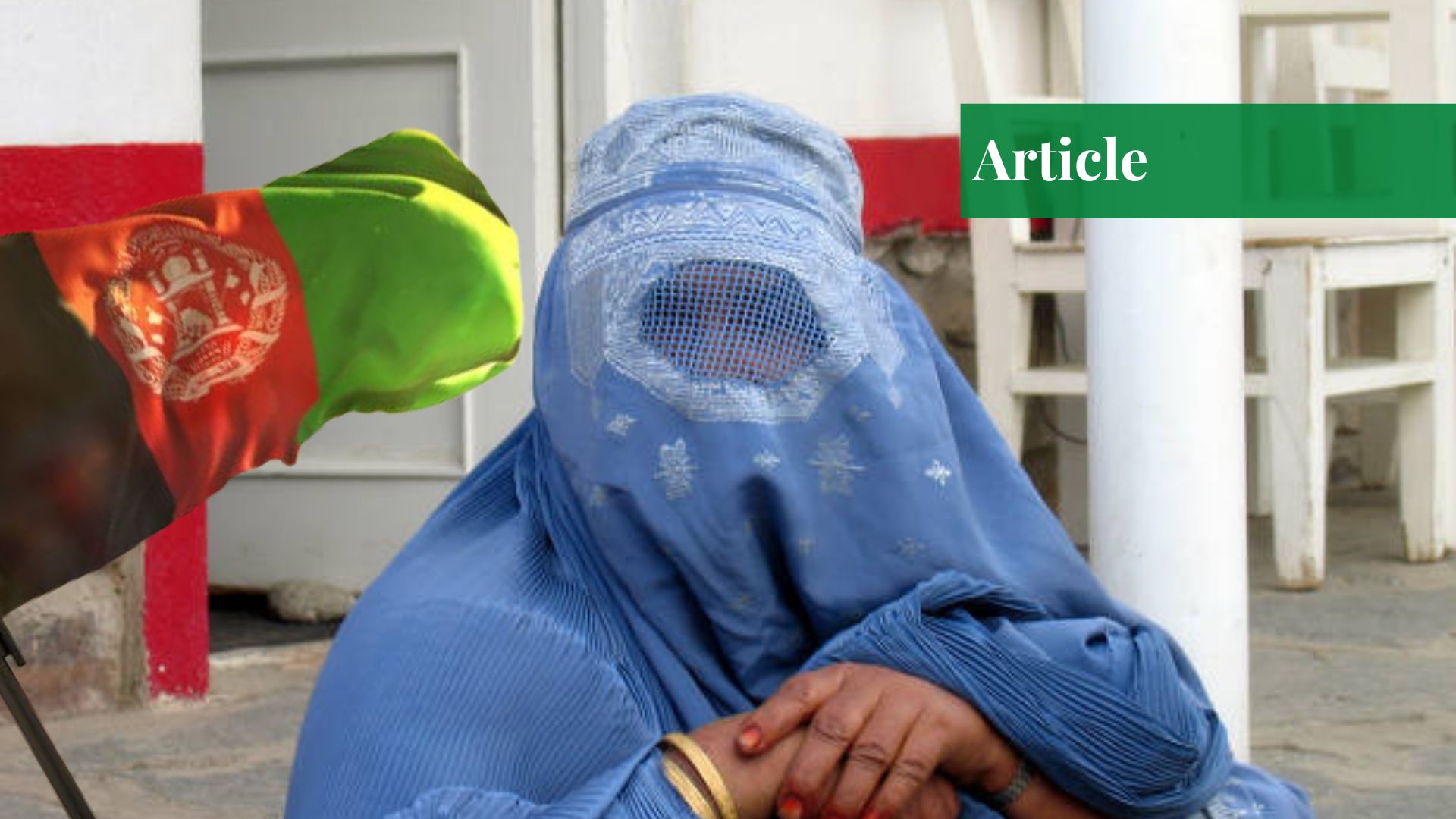The Fate of Women in Afghanistan
The US’s wartime president, Harry S. Truman, presented a bold vision for the United Nations at its creation. As per Truman, the UN was “a body to strengthen the concept of dignity and worth of human beings.” Unfortunately, the words today stand as unmet promises. Just recently, the world body once again left members of the international community in dismay when it decided to exclude Afghan women from the Doha talks, ensuring that the Taliban envoys agreed to participate. The talks, which were initiated in May 2023, focused on the future of Afghanistan under the Taliban government. A range of issues had been put on the agenda, from the revival of the economy to the rights of women and girls in Afghanistan.
Undoubtedly, the Taliban takeover of Afghanistan in August 2021 marked a critical juncture in Afghan history. As the news regarding the Taliban belligerents marching towards Kabul in neighboring Afghanistan began to surface, I recollect encountering varied opinions on the issue. While many people asserted that the Taliban-led government would not only pave the way for a regime based strictly on the principles of Islamic law but would also mark an end to the corrupt and inefficient government backed by the United States in Afghanistan, others, recalling the Taliban regime from 1996 to 2001, appeared concerned regarding the situation of human rights in Afghanistan, particularly women’s rights in the country.
For the proponents of the newly established Taliban regime, this time it was supposed to be different. They argued that it had become important for the Taliban rulers to portray themselves as responsible actors in international society, adhering to the provisions of human rights and international law. Unfortunately, three years of the Taliban in power present a contrasting picture. The situation of Afghan women and girls has significantly deteriorated in the country. Frequent abuses, torture, and detention have only added to the plight of Afghan women.
Women’s Rights in Afghanistan under the Taliban Regime
According to Human Rights Watch, there is a broad consensus that the situation of women in Afghanistan is the “most serious women’s rights crisis in the world.” The body reveals that the Taliban, in their three years of rule so far, have violated every aspect of women’s rights. Just recently, they initiated a crackdown to thwart women from seeking employment.
All the beauty salons for women in the country were shut down. Aid agencies and organizations were also ordered to ensure that no women were employed. This crackdown deprived around 60,000 women of jobs. Simultaneously, restrictions have also been imposed on educational opportunities for women. The incumbent regime aims to promote religious education as an alternative. Experts and human rights defenders fear that these strict restrictions on women might enhance the rate of child marriage and violence against women in the country.
Ironically, the Taliban government referred to the issue of women’s rights in Afghanistan as an “internal issue.” Zabihullah Mujahid, the spokesperson of the Taliban regime, asserted in a press conference that issues surrounding women’s rights were “Afghanistan’s issues.” However, in actuality, it should be clear that women’s rights in Afghanistan transcend being an internal issue; it is a humanitarian crisis. It has in fact become a global issue, calling for immediate attention by the global community.
Why Women’s Rights Are Not an Internal Matter?
In 1983, Afghanistan ratified the International Covenant on Civil and Political Rights (ICCPR) – a multilateral treaty highlighting the civil and political rights of individuals. Under its provisions, individuals have been guaranteed a range of freedoms including freedom of association, assembly, and peaceful movement. Article 6 of the convention protects every individual’s right to life. Similarly, Article 9 assures the liberty and security of individuals and also prohibits forceful and illegal detention, something of which the Taliban regime has frequently been accused.
Besides this, there are a range of other international treaties and conventions, surrounding human rights, particularly women’s rights, to which Afghanistan is a party. These include the International Covenant on Economic, Social and Cultural Rights (ICESCR) and the Convention on the Elimination of All Forms of Discrimination Against Women (CEDAW) to name a few.
The violation of women’s rights in Afghanistan will not only influence the country alone but, in fact, will impact the region as a whole. There is a high probability that frequent violations in the country will eventually result in displacements, with an influx of refugees entering neighboring countries. Pakistan, which shares more than 2,600 km of its border with Afghanistan, is already making attempts to send back the Afghan refugees illegally residing in the country since the Taliban takeover. Moreover, the lack of women’s economic empowerment in the country might also move the entire region into a state of social backwardness, impeding economic and human development.
Apart from this, it must also be remembered that the current situation of women’s rights in Afghanistan will eventually set a precedent for global women’s rights movements in the years to come. It is not only symbolically important but also a test for the global community, particularly the international institutions.
In the wake of the recent Doha talks, the officials from the United Nations made one thing explicitly clear, that recognition of the Taliban regime is still improbable. According to the UN undersecretary, Rosemary DiCarlo, the Taliban government was unlikely to be recognized till they ended the curbs imposed on Afghan women. One should remember that where recognition is important to establish the legitimacy of a government and to fulfill the prerequisites of statehood under international law, securing it can often be a challenging task.
A range of political factors come into play when states are to make a decision on whether to recognize a government or not, for instance, historical ties, cultural ties, geopolitical interests, alliances, and even human rights concerns. To quote an example, the United States did not recognize China until 1979, mostly due to political factors prevalent at the time. Hence, it is clear that if the Taliban in Afghanistan aim to secure recognition from their fellow states, they will have to ensure a conducive environment for women, under the international human rights standards.
Conclusion
To sum it up, the deteriorating situation of women in Afghanistan must be viewed as a global concern, in contrast to what is being argued by the Taliban government. This crisis can have far-reaching international implications. Improvement in Afghan women’s rights has currently become a global mandate. Even for the Taliban themselves, improving women’s rights is something that appears to be a prerequisite if they are to establish themselves as responsible actors in international society.
If you want to submit your articles and/or research papers, please check the Submissions page.
The views and opinions expressed in this article/paper are the author’s own and do not necessarily reflect the editorial position of Paradigm Shift.



